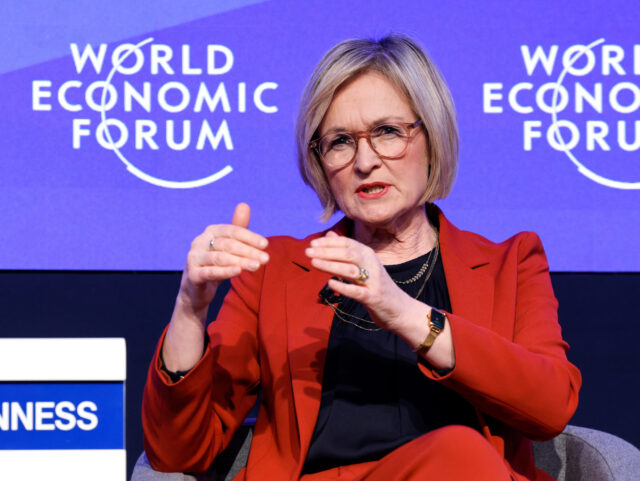The European Commission has apparently publicly welcomed the end of the American petrodollar, heralding what they describe as a new “multipolar global currency regime”.
Responding to a written question from a member of the European Parliament, the European Commission has said that it welcomes the beginning of a new “multipolar” without the U.S. dollar at its centre.
Formerly a cornerstone of the 21st-century world order, the petrodollar system which underwrites American economic hegemony is now under attack, with both Russia and China working to insert their own domestic currency as a viable alternative for the purchase and sale of fossil fuels worldwide.
Now, it appears that the EU may be interested in muscling in on U.S. territory in this regard too, with the European Commission saying that it would like to see its Euro currency adopted for more international energy transactions in the near future.
Writing in response to a parliamentary question on the fall of the petrodollar, EU financial services commissioner Mairead McGuinness said that she and her colleagues welcome a global shift away from the U.S. currency in favour of a more competitive landscape.
“The Commission will continue promoting the international role of the euro and, more generally, is supportive of a multipolar global currency regime which can be beneficial to improve the stability of the international financial system by limiting the impact of external and idiosyncratic monetary shocks on the economy,” the commissioner wrote on Tuesday.
“To strengthen the international role of the euro, the Commission continues to pursue targeted actions,” she continued. “As regards the use of the euro in the energy and commodities sectors, the EU will continue to discuss with key stakeholders to further increase the share of the euro.”
McGuinness’ comments, though written in a relatively veiled manner, appear to reflect a growing appetite within European circles for a challenge to be mounted against the global petrodollar system of trade.
While nations trying to build an alternative economic system — such as the so-called BRICs economies of Brazil, Russia, India, China, and South Africa — have long been trying to undermine the petrodollar with their own offerings, recent geopolitical developments appear to be giving similar ideas to certain leaders in Western Europe, keen to expand the power of the European Union in an ever more tense landscape.
One major supporter of such a petrodollar divestment is French President Emmanuel Macron, who in April warned that the European continent risked becoming a vassal of America if it did not take actions to secure its own sovereignty.
Macron is also now advocating for the EU to stay out of any future conflict between China and Taiwan, arguing that the continent simply does not have the power to deal with an East-Asia conflict and the war in Ukraine at the same time.
“The question Europeans need to answer … is it in our interest to accelerate [a crisis] on Taiwan? No,” he claimed. “The worse thing would be to think that we Europeans must become followers on this topic and take our cue from the U.S. agenda and a Chinese overreaction.”
“If the tensions between the two superpowers heat up… we won’t have the time nor the resources to finance our strategic autonomy and we will become vassals,” he added. “Europeans cannot resolve the crisis in Ukraine; how can we credibly say on Taiwan, ‘watch out, if you do something wrong we will be there’? If you really want to increase tensions that’s the way to do it.”
The comments have deeply upset various politicians within the Anglosphere, who have accused Macron of betraying the Taipei government.

COMMENTS
Please let us know if you're having issues with commenting.